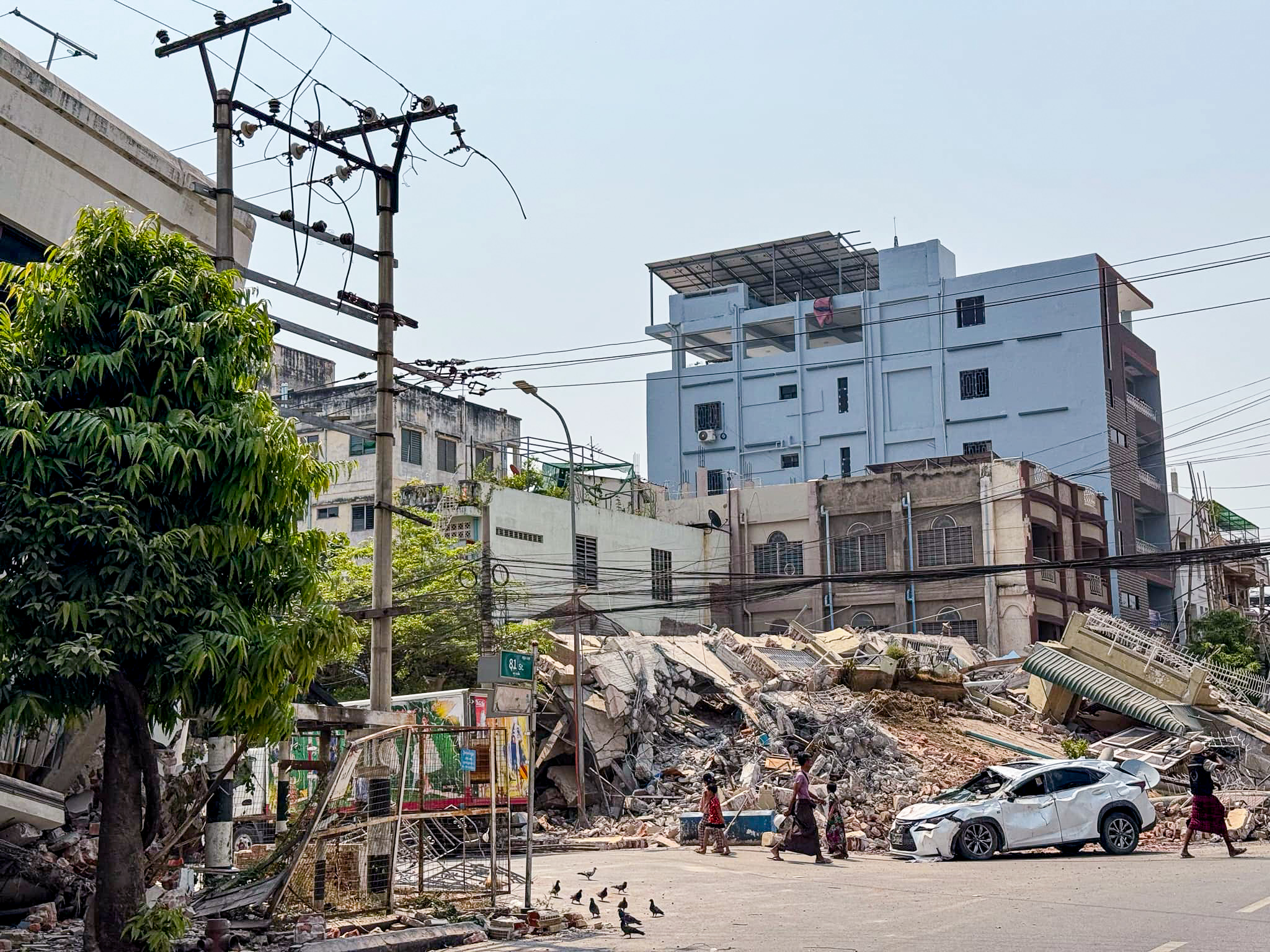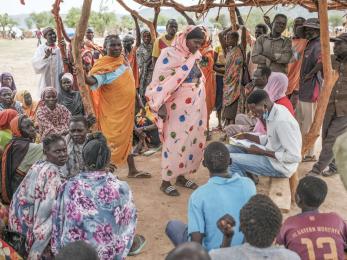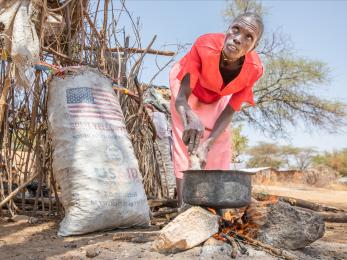From refugee to role model

Sami, 23, came to Zaatari refugee camp two years ago when he fled his home in Dara’a, Syria. For the first eight months, he hated life in the camp. Every day was the same, and there seemed to be no hope of ever leaving.
But his perspective changed one day when a friend called him and said to hurry — someone needed an interpreter. Sami was up for the task. That someone worked for Mercy Corps, and it didn’t take long for Sami to join the volunteer staff in the camp.
He worked his way up, and now Sami is the site supervisor for one of Mercy Corps’ child-friendly spaces in Zaatari. Working with young people, and bringing joy into their daily routine, has rejuvenated Sami and given him a new outlook on his situation.
He knows the feeling of being lost and alone all-too-well, but it’s that experience that helps him pull other young people out of the same hole. “Before working with Mercy Corps, I spent eight months in my tent doing nothing, absolutely nothing,” he says.
“That was destroying me. When I got involved with Mercy Corps I started seeing people, meeting people. Helping people makes you feel better. Makes you feel like you're useful.”
But like all the other refugees in the sprawling tent city that is Zaatari, it was a long journey to get here. Sami grew up in Syria and spent some time studying in Saudi Arabia as a teenager. He returned to Dara’a with his family just before the country plunged into civil war.
As the fighting came closer, prices skyrocketed, and their ability to move was stifled, Sami’s family knew what they had to do. “We didn’t have any money left. Not just us. Most people were starving, we couldn't live there anymore,” he says.
“You couldn’t move in the country to get food. The snipers were everywhere. In my village, you couldn’t cross it, and every time you went out of your house, you had to pray because you felt that you might not get back,” he remembers. “I almost got killed dozens of times.”
Sami and his family began the long trek to safety under the cover of night. “We walked for two hours. Two hours and a half. I was carrying three big bags, walking and walking. There were like 200 people walking around me in the middle of the night.”
Once they reached the Jordan border, they were taken in and put on busses to go to the camp. Sami says he had heard about Zaatari, but never imagined actually going there. As they arrived, they were given a tent, food and basic supplies.
“That moment that I got off and they started giving us aid, I felt that everything was over. Like I'm trapped,” he remembers sadly. The family struggled to adjust to their new surroundings, and it only got worse when winter hit.
“The camp was floating because it was snowing and raining so bad. Every tent in the camp was drowning. You can't imagine — in the middle of the night everybody's out of their tents, they're pulling their stuff from inside. They're carrying their kids. They're running to the schools hiding from the rain and the cold. It was unbelievable.”
When Sami saw the Mercy Corps safe spaces for the first time, he recognized how important they would become. With nothing to do and plenty of time on their hands, most young men in the camp get into trouble or try to make money by helping people move their belongings into the back with a wheelbarrow. “That's not a good thing for the future,” he says.
To help young people stay out of trouble and offer them a positive environment, the space where Sami works has gym equipment, a martial arts space, dance classes and a wrestling team. Most of the kids who attend come every day, except for Friday — a holiday.
“It's for them to get out of the refugee atmosphere — because we’ve been living here for more than two years. Some of us more than three years already. So we try to help them get out of that atmosphere so they can try to improve themselves to become better and to have goals in their lives,” Sami says. For many young people, the gym is the clear highlight of their day.
Sami admires the students he’s helping, and his fellow volunteer staff. “The team that is in the other tent, working with our coach, they're all learning wrestling,” he points out. “And they're hoping that someday when they're back in Syria, that they might be the wrestling team of Syria.”
That determined and hopeful spirit is what Sami is working to instill in the young people who come to the gym. “We made a connection between us and the kids,” he says. “Now it's like a big family. The kids started listening. They started being active people in the community. Their commitment is much better and they’ve become less angry. Most of them now are friends.”
Sami works every day to make the environment better for the young refugees. He wants to make their experience as positive as possible because he knows that when they go home to their tents or their “caravans,” refugee life will still be their reality.
“And I live the same day every day,” he says. “This place helps me too because I work out with them.” At the end of every workday, Sami does his own fitness routine in the gym alongside the students. “I just let it all go here, then go back to laughing,” he says. “I'm okay again.”
Sami’s work has given him a new sense of purpose. After some time in the camp, Sami’s family decided to move to Algeria. He couldn’t originally go with them because of an expired passport. Eventually, Sami’s passport was renewed — but he decided to stay.
He’s happy for them, he says, but he has his own dreams now and dreams for the young people he works with. “I want them to have the chance to build up their future, to have a decent life,” he says. “I'm lucky to be able to speak English to meet people and to have chances. But for them, they're still kids. I wish that they had a chance to do what they want, what they dream of.”
For both Sami and his young students, a common theme rings true — everyone wants to go home. It’s been four long years of war, and the young refugees are becoming restless. They miss their homes, Sami included. “Syria is a peaceful place. And it's really green. It's so beautiful,” he recalls.
“When I came here I realized how much beautiful my country was — we had everything we wanted. People didn't have a lot of money, but they could live the day and they could be happy. The best thing about Syria was peace.”
It’s hard to imagine that peace now, but Sami hopes it will return someday. Back before the war, Sami wanted to study to become a pilot. That’s no longer part of the plan, but he has new ambitions for his future life.
He’s applying for scholarships in hopes of studying international affairs at a university somewhere. This new field of study is something he dreams will someday bring him back home. “I'm hoping that studying international affairs will help me participate in rebuilding my country. I'm hoping to be able to help my people again,” he says. “Just like I'm doing here, but in a different way.”


